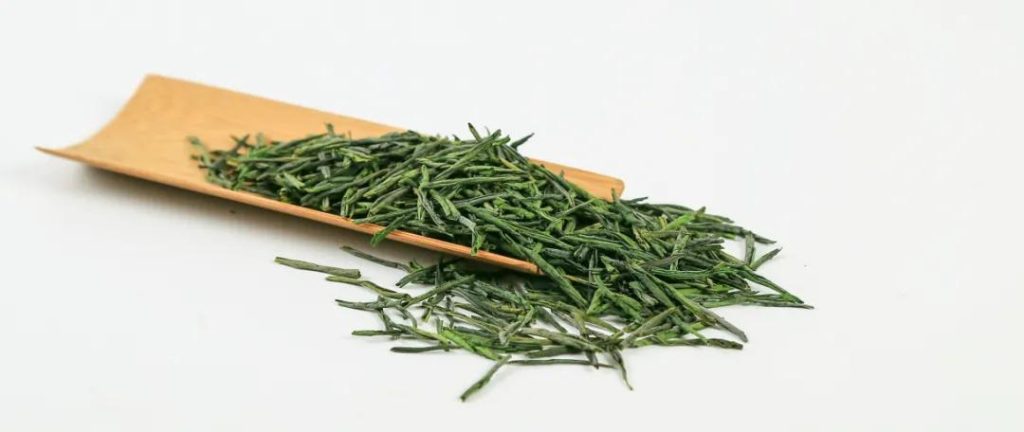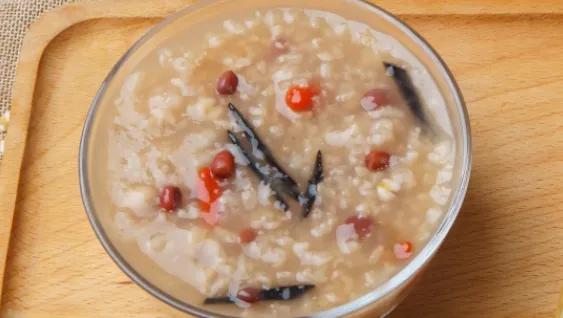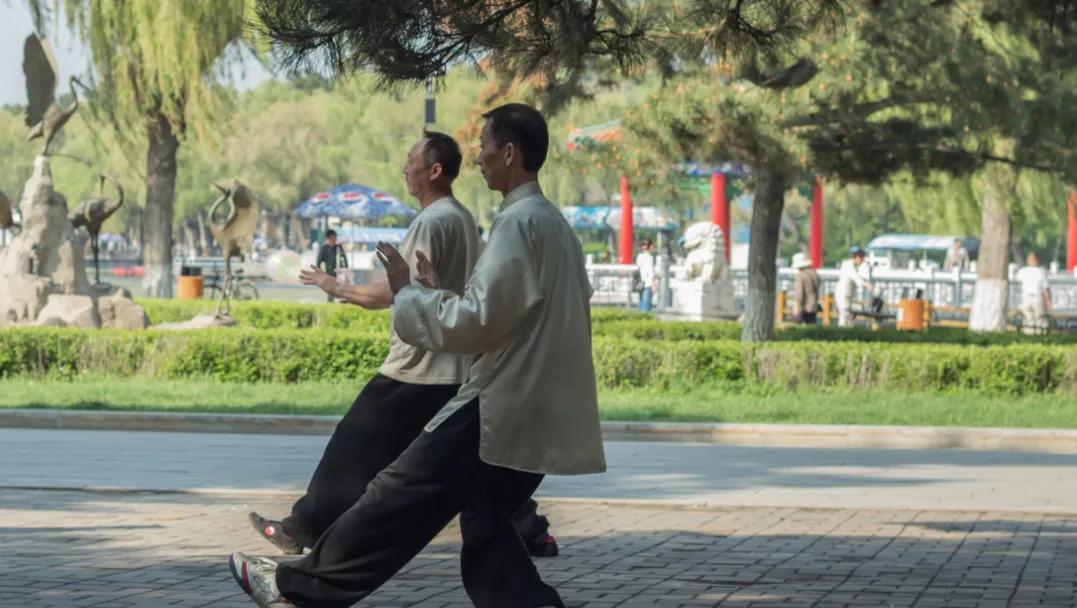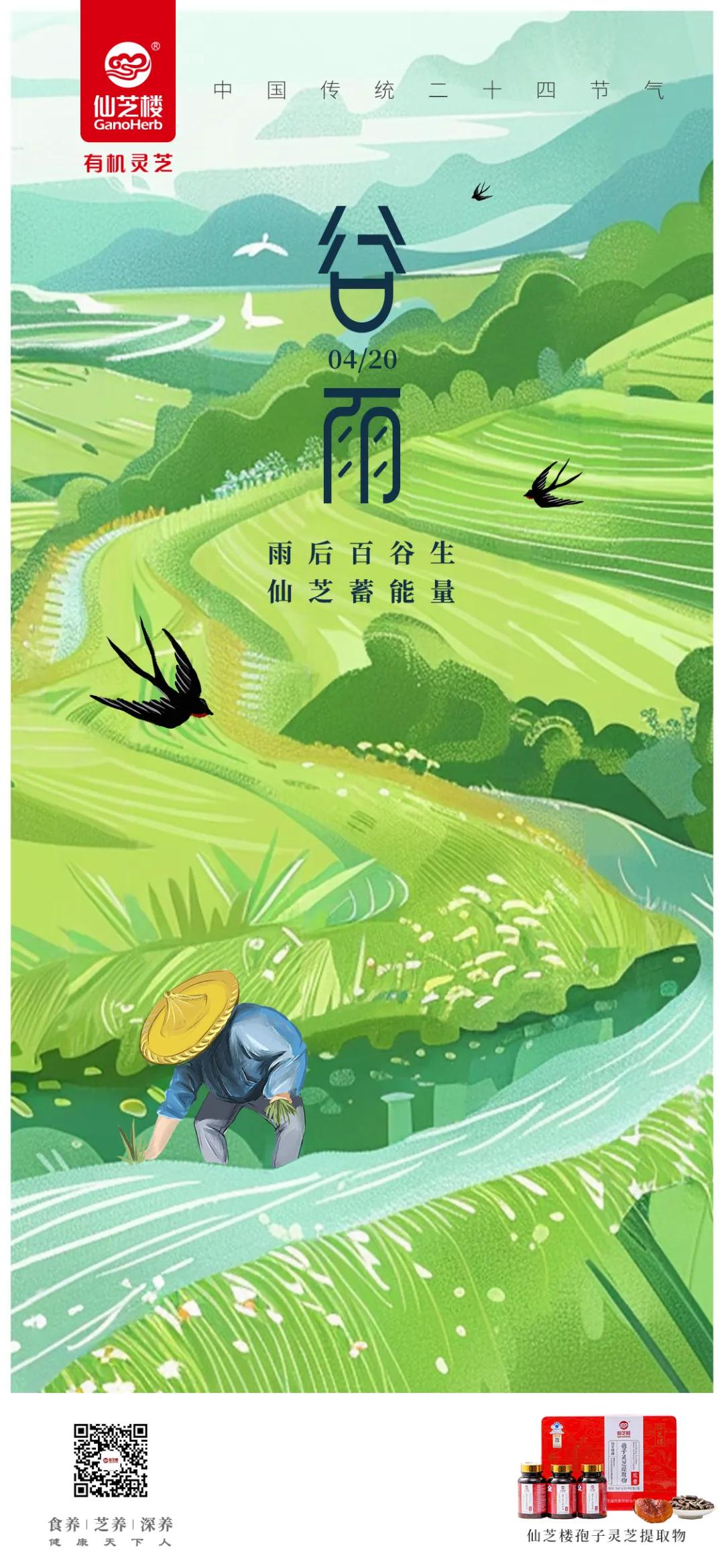April 20th marks the arrival of Guyu (Grain Rain), the final solar term of spring. Following Guyu signifies the end of spring and a gradual transition into summer.
Comme on dit, “Rain gives birth to grains.” During Guyu, temperatures rise more quickly, humidity increases, and rainfall becomes more abundant. This spring rain, precious as oil, nourishes all things, leading to rapid growth.
Cependant, with such changes, it is crucial for our bodies to maintain a gentle and moderate approach to ensure health and a smooth transition.
1. Catch the Rest of Spring: Enjoy Three Foods, Undertake Three Activities
The Guyu (Grain Rain) solar term is a time when health preservation should focus on nourishing yang energy. Durant cette période, the liver qi is active and spleen qi is strong, making warm and nourishing foods ideal. With wild vegetables abundant in the fields and mountains, and spring tea at its peak, it’s an opportune moment to savor seasonal delights, soothe the liver, and nourish yang before spring departs.
Eat Chinese Toon: Clear Heat and Remove Dryness
The period around Guyu is the peak season for Chinese toon (Xiang Chun). Comme on dit, “Toon before the rain is tender as silk.” Xiang Chun harvested at this time boasts a rich aroma, refreshing taste, and is highly nutritious.

From the perspective of Traditional Chinese Medicine (MTC), Chinese toon is warm in nature and bitter in taste. It possesses properties that clear heat, astringe, remove dryness and dampness, and reduce inflammation and toxicity, making it particularly suitable for spring when liver qi is often vigorous and prone to causing internal heat. En outre, gathering Chinese toon in the fields is one of the simple pleasures of springtime!
Pick Spring Tea: Taste the Flavor of the Season
As a proverb says, “Grain Rain, Grain Rain, pick tea in the rain.” Tea leaves picked around the Guyu period are tender, fragrant, and considered to have the best flavor, souvent appelé “Second Spring Tea.” New tea harvested at this time is beneficial for clearing heat, improving vision, and generating fluids to quench thirst. Cependant, it should be consumed in moderation; avoid excessive or strong infusions.

Eat Guyu Porridge: Strengthen the Spleen and Nourish the Spirit
During the Guyu season, increased rainfall is common. To prevent dampness pathogens from invading the body, dietary therapy rooted in TCM can be beneficial. Incorporating ingredients like coix seeds, red adzuki beans (Chi Xiao Dou), poria mushroom (Fu Ling), and Chinese yam (Shan Yao) into meals is recommended. Par exemple, Purple Reishi Coix Seed Congee is an excellent choice. Coix seed is known for its dampness-removing properties, while purple reishi (Ganoderma sinense) helps calm the spirit, aide au sommeil, and course the liver. The combination of these two ingredients strengthens the spleen and dispels dampness, resulting in a soft, fragrant congee that is highly suitable for regulating the body and mind in spring.
Ganoderma lucidum spore Coix Seed Congee: Strengthens Spleen, Calms Spirit, Reduces Swelling, Dispels Dampness

Ingrédients:
- Organic Reishi Slices: 10g
- Coix Seed: 100g
- Sucre: Appropriate amount
Instructions: Wash the purple reishi slices et graines de coix. Place them together in a pot with 2 large bowls of cold water. Cook over medium heat for about 30 minutes until the congee is soft and palatable. You may also add goji berries, graines de lotus, or other ingredients to cook together.
2. Guyu Health Preservation: Regularly Do 3 Small Things for Double the Health Benefits
Increased rainfall during the Guyu solar term is beneficial for grain growth. This period is also an important time for effectively preventing allergies, dispelling dampness, and maintaining skin health. It is advisable to consistently do these three things:
1) Rub the Sides of the Nose with Cold Water
Washing the nose with cold water every morning and evening helps enhance the immune function of the nasal mucous membranes and is a good method for preventing and treating rhinitis.
While washing the nose with cold water, gently rubbing the sides of the nose can improve blood circulation in the nasal mucous membranes and help alleviate symptoms of allergic rhinitis such as nasal congestion and sneezing.
2) Massage Dampness-Dispelling Acupoints
Yinlingquan is a key acupoint for dispelling dampness. It is located on the inner side of the lower leg, in the depression on the inner side of the tibia below the knee. While seated or lying down, massage this acupoint on each leg 60 times per session, once in the morning and once in the evening. The appropriate intensity is when the acupoint feels sore and distended.
3) Engage in Moderate Daily Exercise
In late spring and early summer, as nature transitions from germination to growth, humans should also follow the rhythm of the season and increase outdoor physical activity. Activities such as running, fishing, practicing martial arts (like Tai Chi), doing calisthenics, walking, playing ball games, and flying kites are recommended. These activities help expel stale air and take in fresh air, while also allowing the muscles and bones to stretch and relax.

3. Spring Weather is Changeable, Health Preservation Requires Attention to Four Preventions
As the last solar term of spring, the climate during Guyu remains changeable. Health preservation needs to align with the cyclical changes of the solar terms, focusing on the “four preventions.” By adapting to the changes in both the internal and external environments, one can maintain the normal functions of the body’s organs, achieve a state of yin-yang balance, and organ harmony.
1) Prevent Lingering Cold:
There is a folk saying, “Guyu cold can freeze mice to death.” This refers to the fact that temperatures in the morning and evening are still relatively low during this period. Therefore, in terms of daily living and clothing, it is still necessary to practice appropriate “spring covering”, especially for those who go out early and return late. Pay attention to adding or removing clothes in time to avoid catching a cold due to exposure to cold. Cependant, ce “covering” should be done in moderation, ideally without causing sweating.
2) Prevent Internal Heat (Spring Fire):
After Guyu, the body’s yang energy rises sharply. The spring yang corresponds internally with the liver, making it easy for liver yang to ascend excessively. This can then trigger common spring ailments such as nosebleeds, gum bleeding, maux de tête, vertiges, and red, inflamed eyes – this is the so-called “spring fire,” communément appelé “getting internal heat”. Attention should be paid to preventing “spring fire” by avoiding staying up late.
3) Prevent Rheumatism:
Due to increased rainfall and higher air humidity, stubborn conditions like rheumatism are prone to recurrence. Dans la vie quotidienne, pay attention to keeping joint areas warm, as exposed areas are most vulnerable to invasion by dampness pathogens. Therefore, clothing should cover the joints. Avoid blowing wind on damp skin or hair, and avoid getting caught in the rain. On sunny days, get some sun exposure, and engage in appropriate exercise to induce a light sweat.
4) Prevent Excessive Sweating:
Guyu marks the transition between spring and summer. Pendant ce temps, the body’s energy tends to disperse, making it easy to sweat. Cependant, excessive sweating can negatively affect the health of qi and blood in the summer. Therefore, when engaging in exercise for health preservation during the Guyu period, remember to follow the principle of “relax the body, do not sweat profusely, in order to nourish the organ qi.” Recommended activities include outings in nature, jogging, flying kites, or practicing Baduanjin or Eight Brocade Exercises.
As spring culminates in Guyu, all the hardships of the past will transform into opportunities and catalysts for new life, just as spring gives way to summer, where a sense of decline on one hand ushers in new growth on the other.
With all things growing and thriving, it is an excellent time to absorb the energy of nature and nourish the body and mind with Reishi mushroom herbal supplement.




